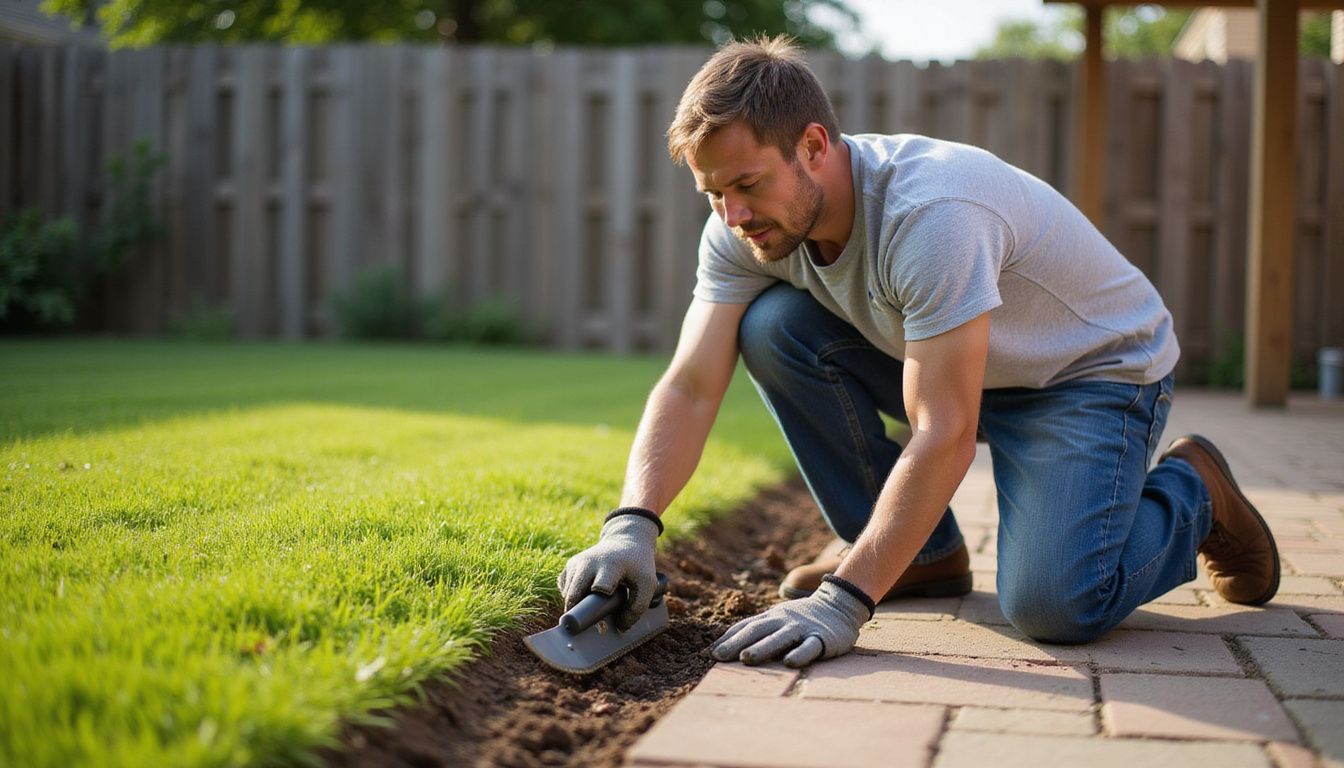Wondering whether to seal concrete coping around your pool? It’s a question many pool owners face. This blog post will guide you through the benefits of sealing your pool deck and coping, offering protection and enhancing its appearance.
Understanding Pool Coping Sealing
Pool coping is an essential part of your pool’s structure, and sealing it helps protect against damage and moisture. The process involves applying a protective layer to the coping to enhance its appearance as well as increase its longevity.
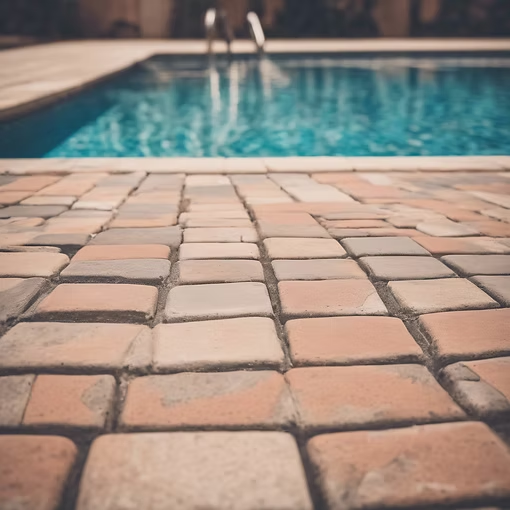
What is Pool Coping?
Pool coping forms the edge around your swimming pool, acting as a frame. This critical feature serves multiple purposes, including directing water away from the pool and into drain areas to prevent damage.
Made from various materials such as precast concrete, stone, or brick, coping adds an aesthetic touch while ensuring safety by providing a non-slip surface for swimmers to grab onto.
Sealing concrete coping around the pool is essential for its maintenance and longevity. Concrete sealer for pool decks protects the coping from moisture penetration, cracking due to freeze-thaw cycles, and wear from constant exposure to sunlight and chemicals found in pool water.
By sealing exterior travertine and concrete around pools, homeowners can safeguard their investment against common issues while enhancing the overall appearance of their outdoor living space.
Why is pool coping important?
Transitioning from understanding pool coping to its significance, pool coping is vital for both functional and aesthetic reasons. Properly installed coping serves as a protective barrier against water damage and moisture infiltration around the pool’s edge.
Additionally, it helps prevent erosion and shifting of the surrounding ground. Moreover, it enhances safety by providing a non-slip surface and defines the pool’s perimeter. The right materials can complement the design of your pool area while ensuring durability in diverse weather conditions.
Maintaining well-designed and durable pool coping is essential for safeguarding not only the structural integrity of your pool but also elevating its visual appeal. It ensures that the area remains safe for everyone who enjoys spending time around or in your swimming facility.
What is pool coping sealing?
Pool coping sealing involves applying a protective layer to the concrete or stone edge surrounding a pool. This process helps prevent moisture intrusion and damage, as well as enhances its aesthetic appeal.
By using a water-resistant sealant, it guards against wear and tear from exposure to pool chemicals, sun, and water. Properly sealed pool coping can significantly extend its lifespan and maintain a secure surface for swimmers while also providing an attractive finish to the overall look of the pool area.
Benefits of Proper Pool Coping Sealing
Proper pool coping sealing provides protection against moisture and damage, enhancing the overall appearance and increasing its longevity. It ensures that the pool area is not only aesthetically pleasing but also well-protected from potential issues.
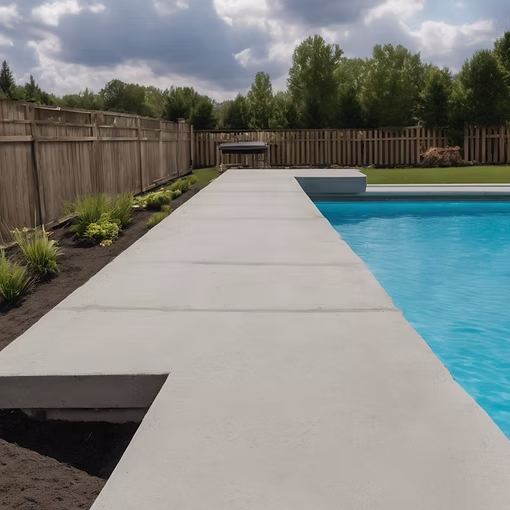
Protection against moisture and damage
Sealing concrete coping around the pool provides a protective barrier against moisture and damage, safeguarding the structure from potential deterioration. This prevents water penetration that could lead to cracks, erosion, and other forms of degradation.
Utilizing a high-quality water-resistant sealant fortifies the coping against weather elements, ensuring its longevity and structural integrity. Implementing proper sealing measures also shields the concrete coping from discoloration, efflorescence, and surface defects caused by moisture intrusion.
Enhanced appearance
Properly sealed concrete coping not only protects against moisture and damage but also enhances the appearance of your pool area. A high-quality sealer can bring out the natural colors of the coping material, giving it a vibrant and attractive look.
Additionally, sealing creates a smooth and polished surface, making it easier to clean and maintain the aesthetic appeal of your pool deck. The use of water-resistant sealants ensures that the coping retains its original visual appeal without succumbing to discoloration or fading over time.
Increased longevity
Sealing the concrete coping around your pool can significantly increase its longevity. By forming a protective barrier against moisture and damage, a proper pool coping sealing regimen can extend the lifespan of your pool deck.
This safeguards the structural integrity of the coping, preventing cracks and deterioration caused by water intrusion.
When to Seal Your Concrete Coping Around Pool
Recommended frequency
To maintain the optimal condition of your concrete coping around the pool, it is recommended to seal it every 1 to 3 years. The frequency may vary based on factors such as climate, usage, and exposure to the elements.
Regular inspection and maintenance are crucial in determining when resealing is needed.
Factors that affect sealing schedule
Several factors influence the sealing schedule for concrete coping around a pool. The material of the coping, weather conditions, usage frequency, and exposure to chemicals and UV rays are crucial considerations when determining how often to seal the concrete.
It is important to note that saltwater pools may require more frequent sealing due to their corrosive nature. Additionally, heavy foot traffic or potential damage from furniture and other objects can accelerate wear and tear on the pool coping, necessitating more frequent resealing.
Choosing the Right Pool Coping Sealer
Selecting the appropriate pool coping sealer ensures maximum protection and longevity for your concrete coping. To discover more, read on.
Types of sealers
When choosing a sealer for your concrete pool coping, there are a few options to consider.
Acrylic sealers are popular for their ease of application and ability to enhance the color of the coping.
Epoxy sealers can provide exceptional durability and resistance to chemicals often found in pool environments. In addition, penetrating sealers offer excellent protection against moisture intrusion without altering the appearance of the concrete.
Each type of sealer has its unique benefits and considerations when it comes to protecting your pool coping.
Proper application techniques
To apply a pool coping sealer, start by cleaning the concrete thoroughly. Use a pressure washer or stiff brush to remove any dirt and debris from the surface. Ensure that the coping is completely dry before applying the sealer.
Begin by pouring the sealer into a paint tray and then use a paint roller to apply an even coat of sealer onto the coping. Work in small sections, ensuring consistent coverage. Allow each coat to dry completely before applying additional coats if necessary.
It’s essential to follow manufacturer instructions regarding application methods and drying times for best results. This process helps protect your concrete coping from moisture damage while enhancing its appearance and increasing its longevity.
Conclusion
Sealing concrete coping around your pool ensures protection from moisture and damage, enhances its appearance, and prolongs its longevity. Regular sealing is imperative for safeguarding the coping against wear and tear.
Choosing the right sealer and applying it properly are crucial steps in maintaining your pool deck’s integrity. Always consult a professional for guidance on when to renew the sealant.
For those seeking high-quality, durable pool coping solutions, Vintage Cast offers the perfect answer with their precast concrete coping product, Kope. Kope is designed to provide both beauty and resilience, making it an excellent choice for any pool area. By selecting Vintage Cast’s Kope for your pool coping, you can enjoy a stunning, long-lasting pool edge that stands the test of time.
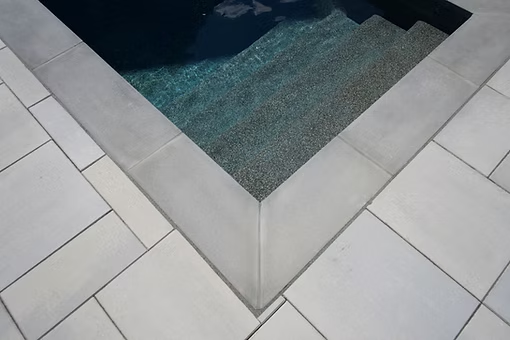
FAQs
1. Why should you seal concrete coping around your pool?
Sealing concrete coping around your pool protects it from moisture, maintains its appearance, and ensures safety by preventing slips.
2. What kind of sealer is best for a concrete pool deck?
For sealing a concrete pool deck, use a water-resistant sealant designed to protect against moisture and saltwater damage.
3. How often should I perform maintenance on my sealed concrete pool deck?
Regular maintenance on your sealed concrete pool deck involves checking the sealant’s condition annually and reapplying as needed to maintain protection and appearance.
4. Can sealing the coping around my pool extend its lifespan?
Yes, sealing the coping around your swimming pool can significantly extend its lifespan by protecting it from weather elements, reducing wear and tear.
5. Is it necessary to hire professionals for sealing concrete around my pool?
While some may choose to apply sealer themselves, hiring professionals ensures proper application of sealing materials for maximum effectiveness in maintaining your pool deck’s integrity.
Recent Posts
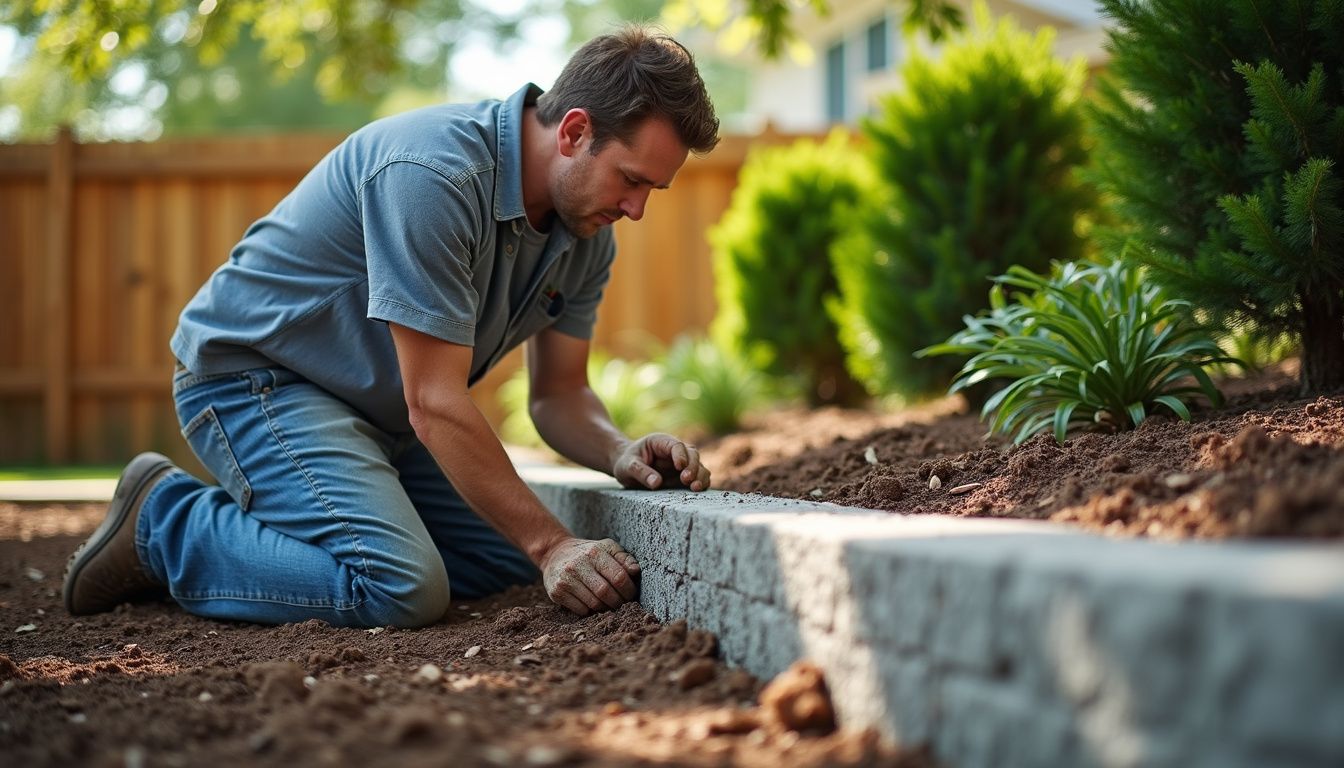
Why Landscaping Pros Prefer Precast Concrete Over Poured-in-Place
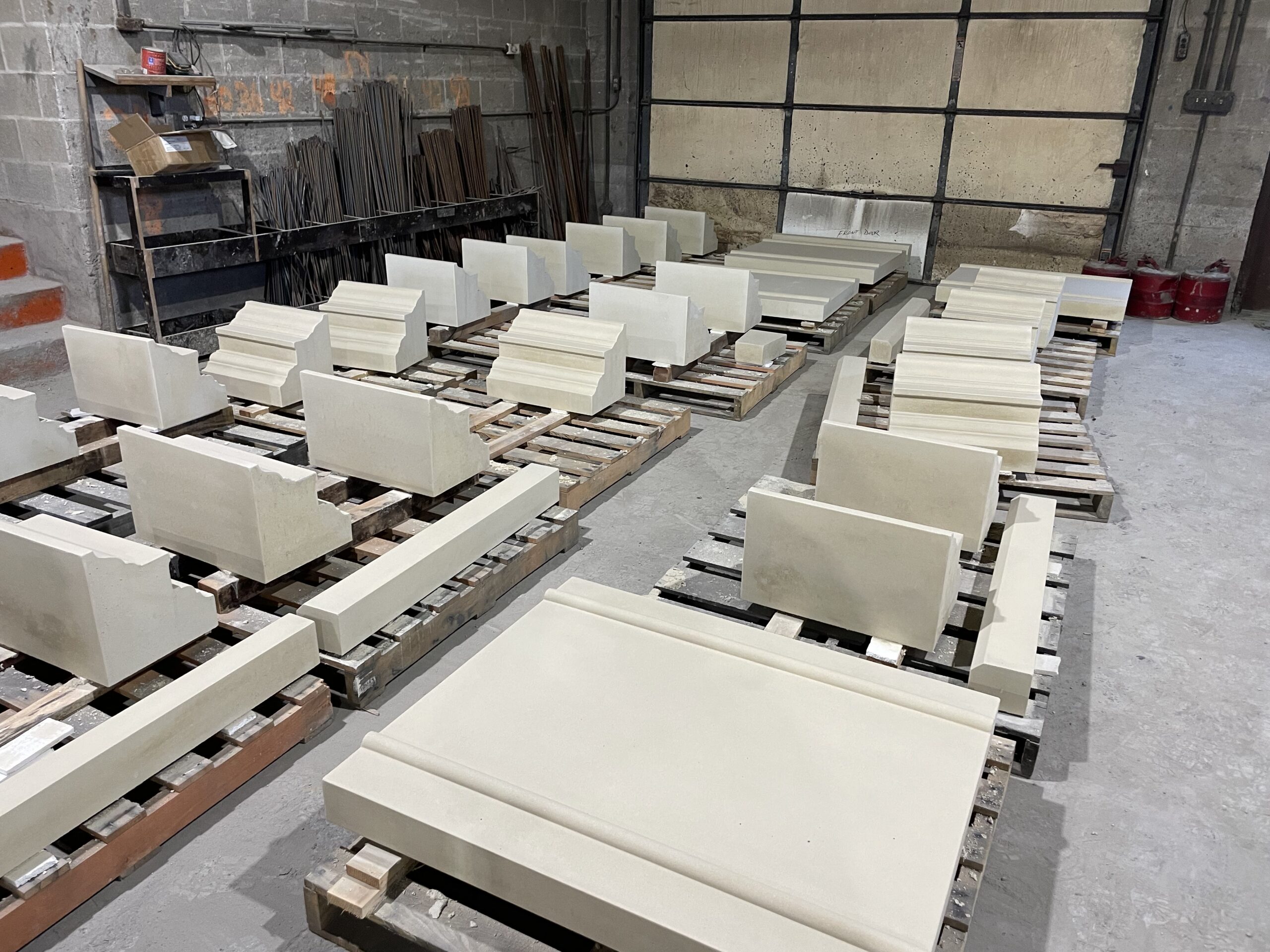
Why & How is Precast Concrete Prestressed?
